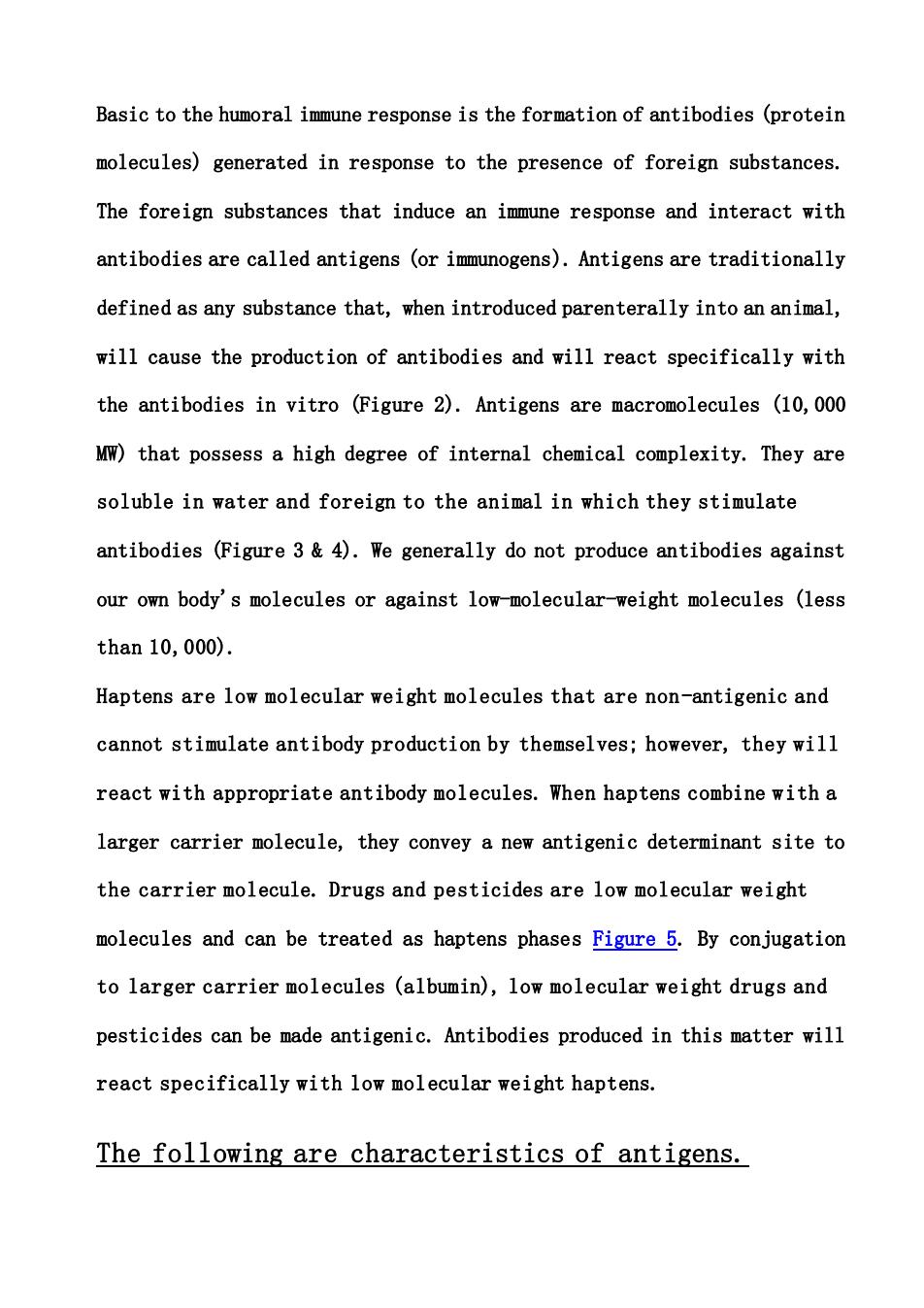正在加载图片...

Basic to the humoral immune response is the formation of antibodies (protein molecules)generated in response to the presence of foreign substances. The foreign substances that induce an immune response and interact with antibodies are called antigens (or immunogens).Antigens are traditionally defined as any substance that,when introduced parenterally into an animal, will cause the production of antibodies and will react specifically with the antibodies in vitro (Figure 2).Antigens are macromolecules (10,000 MW)that possess a high degree of internal chemical complexity.They are soluble in water and foreign to the animal in which they stimulate antibodies (Figure 3&4).We generally do not produce antibodies against our own body's molecules or against low-molecular-weight molecules (less than 10,000). Haptens are low molecular weight molecules that are non-antigenic and cannot stimulate antibody production by themselves;however,they will react with appropriate antibody molecules.When haptens combinewitha larger carrier molecule,they convey a new antigenic determinant site to the carrier molecule.Drugs and pesticides are low molecular weight molecules and can be treated as haptens phases Figure 5.By conjugation to larger carrier molecules (albumin),low molecular weight drugs and pesticides can be made antigenic.Antibodies produced in this matter will react specifically with low molecular weight haptens. The following are characteristics of antigens.Basic to the humoral immune response is the formation of antibodies (protein molecules) generated in response to the presence of foreign substances. The foreign substances that induce an immune response and interact with antibodies are called antigens (or immunogens). Antigens are traditionally defined as any substance that, when introduced parenterally into an animal, will cause the production of antibodies and will react specifically with the antibodies in vitro (Figure 2). Antigens are macromolecules (10,000 MW) that possess a high degree of internal chemical complexity. They are soluble in water and foreign to the animal in which they stimulate antibodies (Figure 3 & 4). We generally do not produce antibodies against our own body's molecules or against low-molecular-weight molecules (less than 10,000). Haptens are low molecular weight molecules that are non-antigenic and cannot stimulate antibody production by themselves; however, they will react with appropriate antibody molecules. When haptens combine with a larger carrier molecule, they convey a new antigenic determinant site to the carrier molecule. Drugs and pesticides are low molecular weight molecules and can be treated as haptens phases Figure 5. By conjugation to larger carrier molecules (albumin), low molecular weight drugs and pesticides can be made antigenic. Antibodies produced in this matter will react specifically with low molecular weight haptens. The following are characteristics of antigens